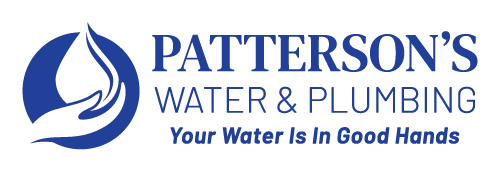FAQs
YOUR FREQUENTLY ASKED QUESTIONS...
How will I know which type of water remediation system I need for my home?
A water treatment system is installed based on a water test and calculation of water consumption. Once your water has been tested a system can be built specifically to your needs. A basic water test can be performed by your water treatment professional. However, for a more comprehensive test, you can call a New Jersey Private Well Testing Lab. You can find a list of Private Well Testing facilities at http://www.nj.gov/dep/watersupply/pw_pwta.html
Once my water softener is installed, how much salt do I add to the system and which type of salt should I use?
All water softener installations by Patterson’s Water & Plumbing include 200-300# of solar salt. The homeowner should always keep salt in the brine tank. There are several types of salt on the market; crystal salt, pellet salt, and potassium chloride salt (for people on salt-free diets). Pellet salt is a cleaner grade of salt, however, it does tend to bind together in the brine tank and form a salt bridge and it can also form a "brine mush" on the bottom of the salt tank. If you decide to change salt types, empty your brine tank first. This can either be done manually or by running the system through extra regeneration cycles.
How often should I have my system serviced?
We recommend most water treatment systems to be serviced on an annual basis. Our database alerts us when all of our systems are due to be serviced. We then mail our customers a reminder postcard to call and schedule an appointment.
I have a single tank water softener in my home. I am thinking about getting a sprinkler system but don't want the orange stains outside. Will my current water softener be able remove iron for both my household and sprinklers?
A single tank water softener may be undersized for both the household and the sprinkler system. Eventually the system may fail causing iron to pass through, staining appliances, laundry, plumbing fixtures and sidewalks and bright rust color.
We recommend treating your home and sprinkler system with a twin tank metered water softener. This system has a meter set to a certain gallon usage. Once the gallons have been satisfied, the system automatically switches to the second tank while the first tank goes into its regeneration mode. The water usage is never interrupted for regeneration purposes. This system allows the household to have 24/7 clean water!
I have that rotten-egg odor in only my hot water lines. Is this coming from my well?
Hydrogen sulfide is a gas that has a similar odor to rotten eggs. However, if this gas was present in your well you would smell it in both the hot and cold lines. When the odor is in only in the hot lines it most likely is caused by the anode rod in the hot water heater. The anode rod is a sacrificial metal rod made of magnesium, aluminum, or zinc that protects the tank from corrosion. Once this rod has corroded it gives off that rotten egg odor. The anode rod can be easily removed from the hot water heater, and the tank can be chlorinated.
I have a carbon filtration unit installed for odor removal. My water pressure has suddenly decreased. What can I do about this?
A sudden loss of water pressure can be an indication that it is time to change your carbon or sediment cartridge. Once the cartridge is clogged it will decrease your household water pressure.
My plumber told me I need a water treatment device that will prevent pinhole leaks in my copper plumbing. Which water treatment unit is right for me?
First, have your water treatment professional perform a water test. Your pH (potential for hydrogen) is likely to be low. Anything under 6.5 will cause corrosion in copper plumbing, which in turn causes green/blue stains in sinks and tubs. An acid neutralizer will prevent this from happening. An acid neutralizer is a tank filled with a mineral called calcium carbonate which dissolves in water to regulate your pH. After time this dissolved calcite will need to be replenished in order for pH to be properly regulated.
Does a water treatment professional have to be licensed in their field?
Under the New Jersey Plumbing Code Book, any professional who cuts through a water line MUST have a NJ Master Plumber's License. Before hiring a water treatment professional please ask if they are working under a Master Plumbers License.
I have white stains on my pots and pans, my dishwasher, glassware and in my shower. What causes this?
The white scale build up is the water hardness (dissolved rock) that precipitates out of the water once water is heated. Water hardness also causes dry skin, brittle hair, dingy clothes after laundering, decreased life of any water using appliance and makes heating costs increase as the heating element has to now heat through this hardness scale. Water hardness can be removed from the incoming water by installing a water softener. For more information on water hardness please go to: http://www.wqa.org/Whats-in-Your-Water/Perceptible-Issues/Scale-Deposits
I have city water. What should I be concerned about removing?
Anyone using municipal water should be concerned about chlorine and chloramines levels and disinfection by-products like trihalomethanes. Your body will absorb more chlorine in a 10 minute hot shower then it will by drinking 8 8oz glasses of that same water! The best practice for removing these contaminates is using either a whole house carbon filter or a whole house carbon tank. For more information on disinfection and their byproducts please go to: http://water.epa.gov/drink/contaminants/basicinformation/disinfectionbyproducts.cfm
